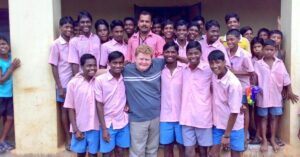Started With Rs 3000, This All-Women Canteen Now Earns Rs 3 Crore Per Year
Indumaty Barve, Usha Manerika, Jayashree Samant and Shubhada Kothawale came together in 1991 to form the Shramik Mahila Vikas Sangh to help underprivileged women and single mothers become financially independent
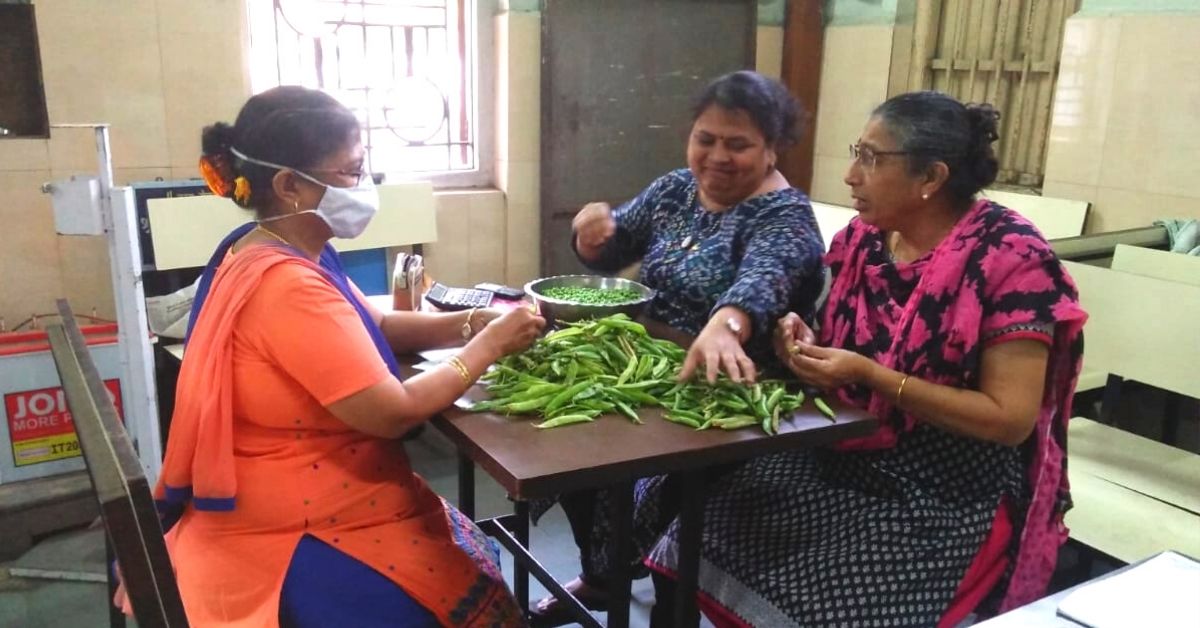
At the age of 30, Sumitra Shinge from Vasai, Mumbai, lost her husband. Her son was then five years old, and the two had no means of gaining financial support. While looking for a job to sustain her child, she was introduced to the Shramik Mahila Vikas Sangh, an all-women initiative that supports women like Sumitra.
Now 53, Sumitra says she has become financially secure and was able to educate her son. He is now 25, and currently works in a private company. This, she says, has been made possible through the efforts of the all-women initiative.
Registered as a Trust in 1991, the Shramik Mahila Vikas Sangh has empowered over 300 underprivileged women in Mumbai, by giving them the platform to use their culinary skills to earn a decent livelihood.
Indumaty Barve, a teacher at New English School on MG Road, Vasai, formed the Trust with her friends Usha Manerikar, Jayashree Samant, and Shubhada Kothawale. The women came from different backgrounds — a teacher, a homemaker, and those working for social causes — but were united in their aim to support women in need. The initiative began in the 80s with women making papads. However, due to financial constraints, the business died, and the founders decided to switch to starting a canteen on the school’s premises.
Of women, for women
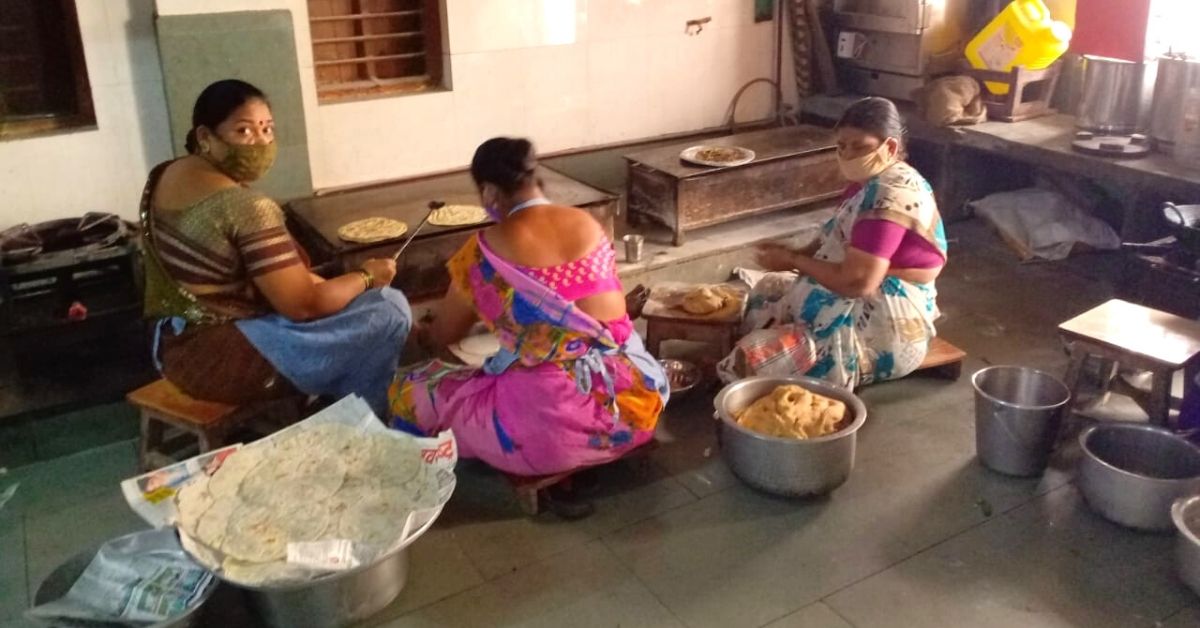
“Once business failed, we thought cooking could be a feasible option. We were also granted access to a restaurant on the school premises that had shut down. Initially, we were allowed to use it without rent,” says Bharati Thakur, one of the trustees, who has been working with the organisation since day one.
The friends pooled together a sum of Rs 3,000, and identified seven women who would cook and serve food to customers from low-income groups such as bus drivers, autorickshaw drivers, and working bachelors, among others. In 2021, the initiative has since expanded to six outlets in various parts of the city, with a turnover of Rs 3 crore.Around 175 women are now living a dignified life
“In the 90s, women could not step out for work that easily, and found it difficult to get jobs due to poor academic qualifications. Who will give a high-income job to a woman who is a Class VII or VIII dropout? These were single mothers, or those living in poverty, and needed a helping hand. They were proficient in cooking, and hence, the initiative began,” Bharati says.
Jayashree Samant (69), founder, says the organisation received support through people’s contributions in investment, providing a space for the setup, and supplying utensils, groceries and vegetables every week. “The food plate offered two rotis, dal, rice, two kinds of sabzis, papad, and pickle, for Rs 10. Over the years, the price of the plate has increased to Rs 73. Ordering additional items and desserts costs extra. The centre operates from 8 am until 10 pm,” she says.
Earlier, work timings were flexible, and women could come in as and when it suited them, complete their shift, and were paid accordingly. However, over the years, they have come to work in shifts, with responsibilities such as handling the cash counter, cooking, cleaning, managing customers, and bringing ration being allocated to them. The business was slow initially, and sometimes, the women had to take the unsold food home. They also needed to be trained in terms of maintaining the quality and taste of the food. Eventually, business picked up, as people flocked in to eat simple and affordable food.
A life of respect and dignity
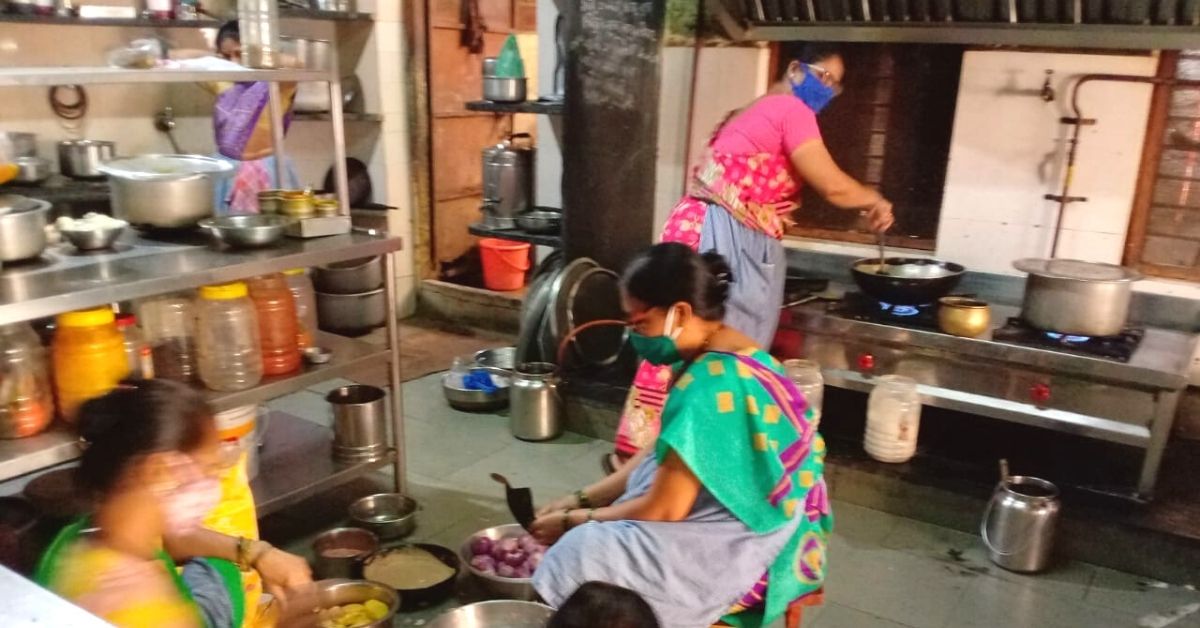
“The women get salaries, and thus have control over their financial decisions,” Jayashree tells The Better India. “Through profits, we have been able to provide them with a provident fund, pensions, insurance policies, funding for education, health benefits, and other monetary support. None of the trustees benefit from the profits.”
She adds, “These women can earn the same amount elsewhere, or by doing odd jobs, but the support they get here for education, loans offered on credits, and other such benefits enable them to lead secured and respectable lives.”
Sumitra has now worked with the Trust for the last 23 years. “I had nowhere to go when my husband passed away. I came to know of this initiative through a friend, and began working here. The Trust paid for my son’s education, and allowed me to lead a life without financial burdens,” she says.
Another 47-year-old Jaya Lingayat says she moved to Vasai from Kalyan after her wedding. “I was looking for a job and became acquainted with Indumaty through a relative. I came from a lower-middle-class background, which had its limitations, as I had to balance household chores and work. Flexible work hours at the canteen allowed me to do that. The community has given me a new identity, and people respect me for my work.” she adds.
Jaya says all the women in this initiative are bound together. “We stand with each other through difficult times. ”
Women who retire have received savings of over Rs 1 lakh and started their own homemade food businesses. Jaya says she is confident she won’t be left without means to earn for herself after retirement. “I feel secure that once I am old, I will have some savings through the PF and pension plan in a bank,” she says.
Usha Mangerikar (75), co-founder, says that beyond providing financial security, the initiative has provided life experiences to these women. “They had never travelled on a long-distance train, or gone out for a picnic. We organise leisure trips to different places to help build confidence in these women. In 2020, they expressed their desire to travel via a flight, and we took them on a trip to Hyderabad,” she says.
Unflinching resilience
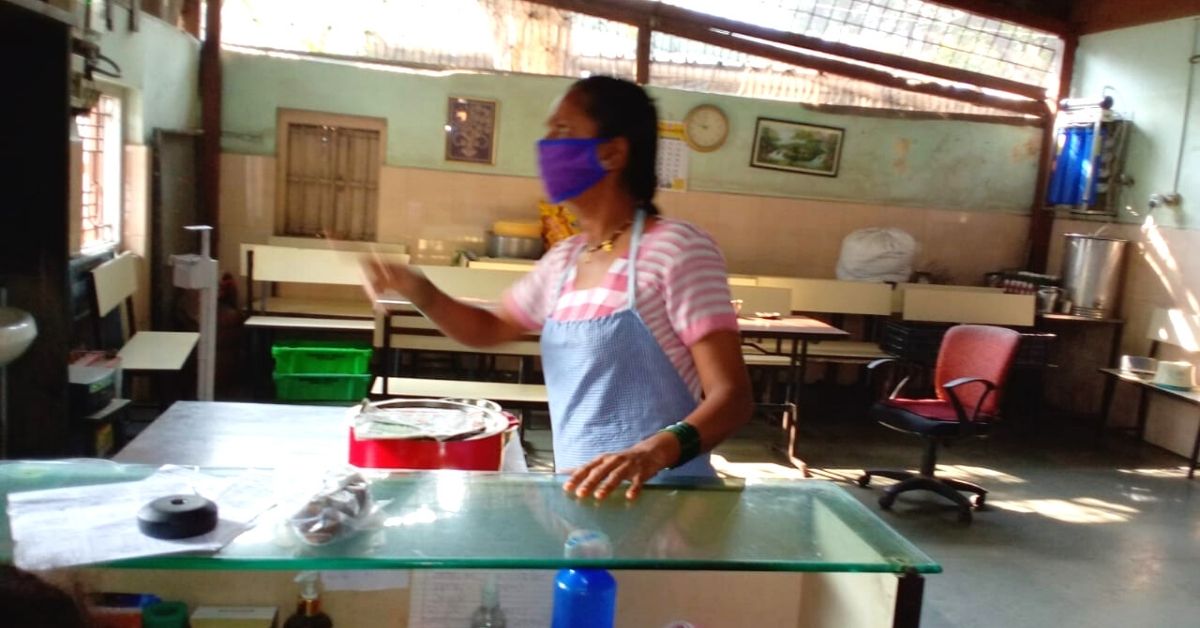
In the last 30 years, the founders have seen all kinds of ups and downs, and yet, continue in their efforts.
“We have six outlets across schools, colleges, and hospitals. But not all make profits, and so we rely on one or two centres. We don’t receive major donations, and run solely on the profits earned. Cost of the food we serve cannot be increased, and must be comparatively cheaper than restaurants, so it’s affordable for all. At the same time, quality needs to be maintained. The COVID-19 pandemic has added to the crisis. At present, only takeaway orders are being served,” Jayashree says.
She says the government should be sensitive towards their cause and allow subsidies or tax benefits. “Such support will enable these women to upgrade their socio-economic status. Profits earned could benefit them directly, instead of us having to pay heavy taxes to the government. But a positive response to such requests made in the past is awaited,” she says.
Speaking about future initiatives, Jayashree says that plans are underway to offer counselling sessions with help from professional psychologists. “The women do not always have support from families. Many of them are single mothers who are struggling to make ends meet alone. These women need emotional and psychological help. In terms of business, we are planning to introduce readymade snacks and food to boost earnings. Such items are offered during the festive season, but the aim is to make them available through the year now,” she says.
Looking back at the struggles and milestones in the past decades, the founders never imagined they would impact so many lives. “The entire credit goes to these women who have shown resilience and supported each other,” Usha says.
Edited by Divya Sethu
If you found our stories insightful, informative, or even just enjoyable, we invite you to consider making a voluntary payment to support the work we do at The Better India. Your contribution helps us continue producing quality content that educates, inspires, and drives positive change.
Choose one of the payment options below for your contribution-
By paying for the stories you value, you directly contribute to sustaining our efforts focused on making a difference in the world. Together, let's ensure that impactful stories continue to be told and shared, enriching lives and communities alike.
Thank you for your support. Here are some frequently asked questions you might find helpful to know why you are contributing?


This story made me
-
97
-
121
-
89
-
167




